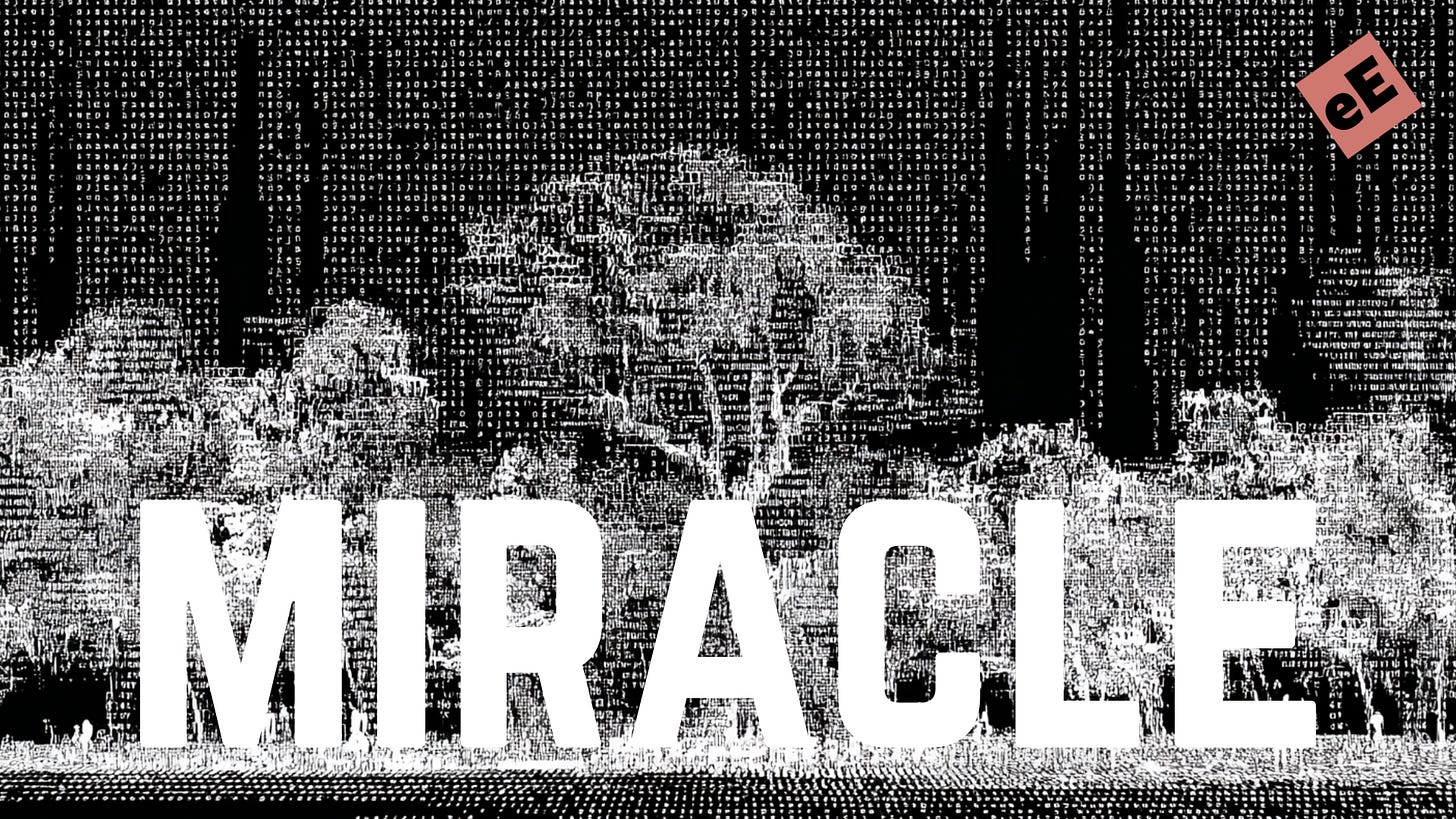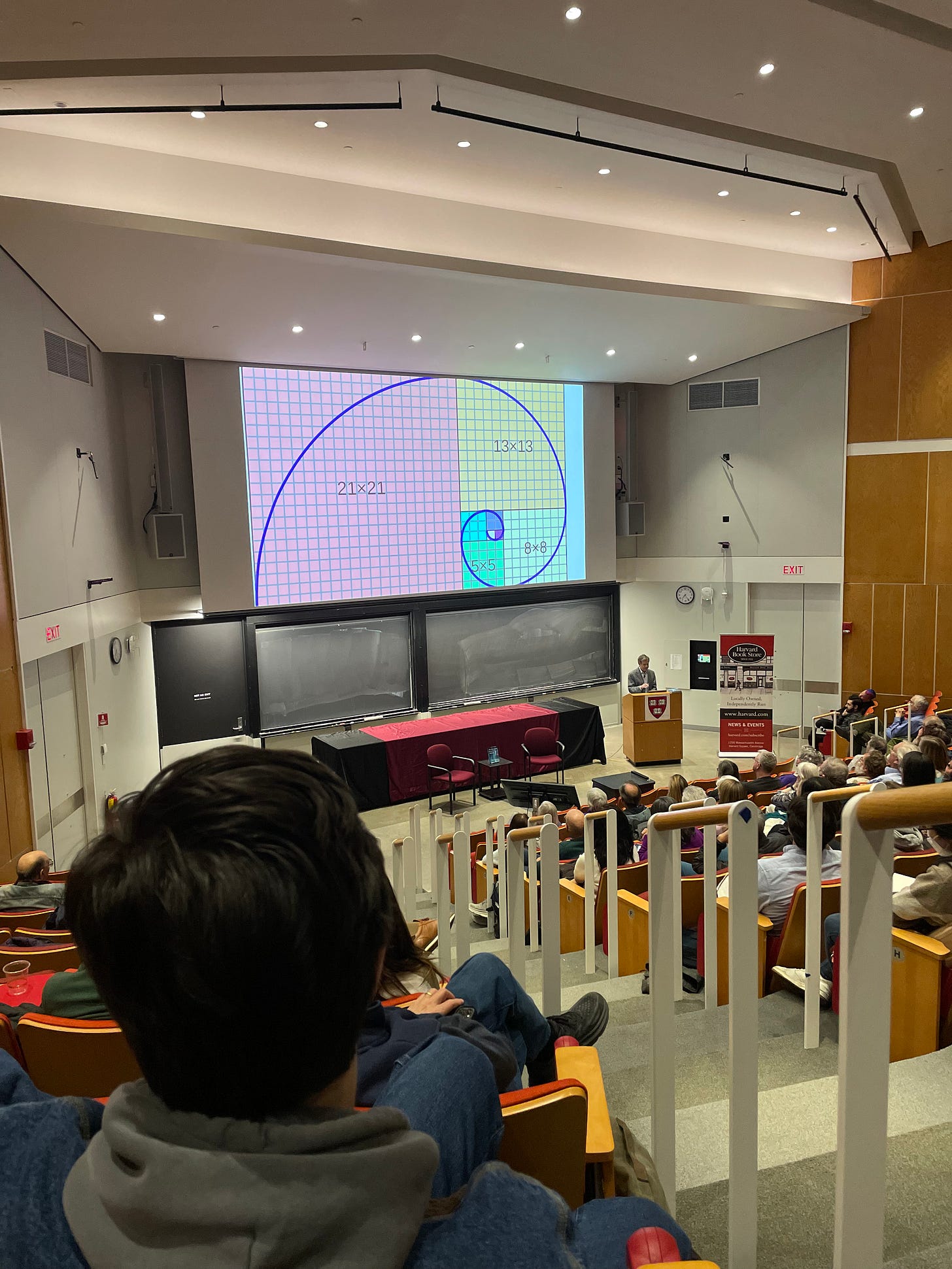Video Essay:
Text:
I.
When I was planning to visit Harvard to give a talk last fall, I looked up events I could attend while in Boston. I saw that Alan Lightman was going to give a talk at the Harvard Science Book Talk about his new book, and I quickly reserved a spot to attend. I hadn't read any of Lightman’s book at the time, but of course, I had heard a lot about him. I believe I first heard about him about a decade ago when, spurred by my intellectual interests, I began researching professors who had modeled their careers to encompass a wide variety of pursuits. He was the first professor at MIT to receive a joint appointment in both the sciences and the humanities. I recalled reading about him and reassured myself that I wasn’t that crazy after all (or may be I was).
When I got to the venue of the talk, he sat beside me outside the lecture hall for a while, I didn’t realize he was the one until someone yelled “Prof Lightman” or something to that effect. After the talk, I bought a signed copy of the book.
Alan Lightman's "The Miraculous from the Material" is a captivating exploration of the wonders of the natural world, viewed through the lens of a self-proclaimed "spiritual materialist" (I will come to this materialist bit in a minute). In this book, Lightman examines various natural phenomena, from the mundane to the spectacular (mostly spectacular than mudane), and elucidates how the material world, with its rules and laws, is capable of extraordinary displays of beauty and wonder.
Lightman's journey as a materialist, he says, began in his youth, where he meticulously constructed a laboratory in his bedroom closet. It was there that he embarked on his investigations of the material world, building pendulums and even a light-borne communication device. Through these experiments, he discovered that the physical world, or at least his little corner of it, obeyed reliable, logical, quantitative laws.
Lightman's fascination with the material world did not diminish his awe and amazement of natural phenomena. From the microscopic world of Paramecia to the rings of Saturn, Lightman found beauty and wonder in the material world and its laws.
One of the parts of the book I enjoyed the most is the way Lightman weaves together science and personal experiences. He recounts his first encounter with bioluminescence while returning to his island house in Maine, where he noticed the wake of his boat glowing. He writes about the science behind this phenomenon, explaining how it is caused by a chemical reaction in organisms like fireflies and algae.
Lightman's fascination with the natural world extends to the intricate structures created by living organisms. He writes about the spider web, considering it the most beautiful structure created by any living being other than Homo sapiens. Spiders utilize different types of silk for various purposes, including trapping prey and wrapping victims in a deathly cocoon-like structure. Lightman also elucidates the remarkable ability of spider webs to spring out and capture flying insects, a feat achieved through electrical attraction.
His curiosity extends to the skies, where he explores the physics of bird flight. He explains how birds generate lift through the shape of their wings and their forward motion, enabling them to seemingly defy gravity. There is also this intriguing phenomenon of birds flying in V formations, revealing how each bird, except the leader, conserves energy by taking advantage of the uplifting pockets of air produced by the bird in front.
I wish I had read books like this when I was much younger, it would have saved me the horror of memorizing some of my text books. Lightman writes so well about things you might otherwise think are impossible to explain. I probably wouldn’t have read the book if I hadn’t attended the talk, so I’m glad I did.
II.
In addition to a general review of the book, I'd like to add a few commentaries. While this book is not about philosophy (I should state this very clearly), a few important, opinionated statements were made that I think warrant a full-fledged philosophical commentary. And those statements essentially can be summarized in what Lightman called spiritual materialism, which seeks to harmonize transcendent experiences with materialism.
I believe this framework faces a foundational challenge from Alvin Plantinga’s Evolutionary Argument Against Naturalism. Plantinga argues that if naturalism and evolution are true, our cognitive faculties—including those generating spiritual feelings—evolved for survival, not truth, rendering even materialist explanations of spirituality epistemically unreliable. For instance, sensations of cosmic connection or awe might be adaptive illusions fostering social cohesion or resilience, not genuine insights into reality. This creates a paradox I think: Lightman’s framework depends on neuroscience and evolution to explain spirituality, yet naturalism undermines trust in all cognitive outputs, including the scientific reasoning used to validate such spiritual materialism. And one could respond and say that spiritual experiences require no truth-claims beyond their material origins, sidestepping the argument’s focus on belief reliability.
But there is more to be said on this topic: the mysterious alignment between abstract mathematical truths and physical reality (as seen in Eugene Wigner’s popular paper: “unreasonable effectiveness of mathematics”) poses a dual challenge to materialism. Materialism struggles to explain why accidental cosmic processes would conform to elegant, discoverable mathematical laws or why survival-driven cognitive faculties could reliably uncover these laws. The latter intersects with Plantinga’s Evolutionary Argument Against Naturalism: if naturalism undermines trust in cognition’s truth-aimedness, even science’s reliance on mathematics becomes suspect, as evolved brains might prioritize adaptive fictions over truth. Thus, materialism cannot coherently account for mathematics’ predictive power or the reliability of the minds that wield it.
And there is this scientific antirealism angle too but it’s doesn’t look like a crisp argument to me, but I will still flesh it out anyways. When I first read about scientific anti-realism, I didn't quite get it. But now I'm beginning to think that I might be able to make sense of scientific anti-realism on the grounds of materialism. In brief, (some) scientific antirealist challenges the notion that there are mind-independent truths about reality. They suggest that scientific theories are primarily instrumental tools that help us predict, explain and control stuff, they do not necessarily provide a true picture of how the world actually is. Granting the Evolutionary Argument Against Naturalism - and I am now back to my initial point - it appears to me that materialism paradoxically supports antirealism: if our minds are products of blind evolutionary processes, we lack justification for believing they can grasp fundamental truths about the universe.
We can also go through the route of accounting for information in the evolutionary landscape: Darwinian accounts of how complex biological information arises rely on a "displacement fallacy." In brief, instead of explaining where the information originally comes from, the Darwinian account simply shift the burden onto natural selection or specially designed fitness landscapes, effectively assuming the very information they're supposed to explain.
I suppose this will do for now. I should also add that my philosophical commentary should not be taken as a response to Professor Lightman's complete philosophical framework, as I have not read him beyond this book. It's just a commentary to a few comments that actually popped at me while reading this particular book.
In summary, The Miraculous from the Material is an enjoyable read that invites us to marvel at the wonders of the natural world regardless of our philosophical leanings. That being said, if I were to give the book a title, I will keep things as it is, except to swap the positions of “Material” and “Miraculous.”




This is a really good piece